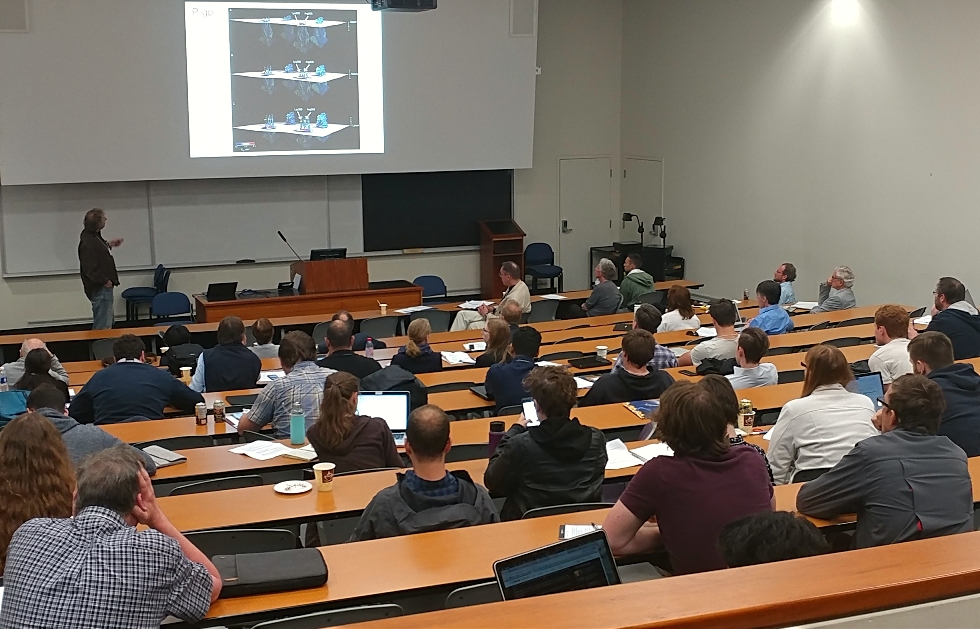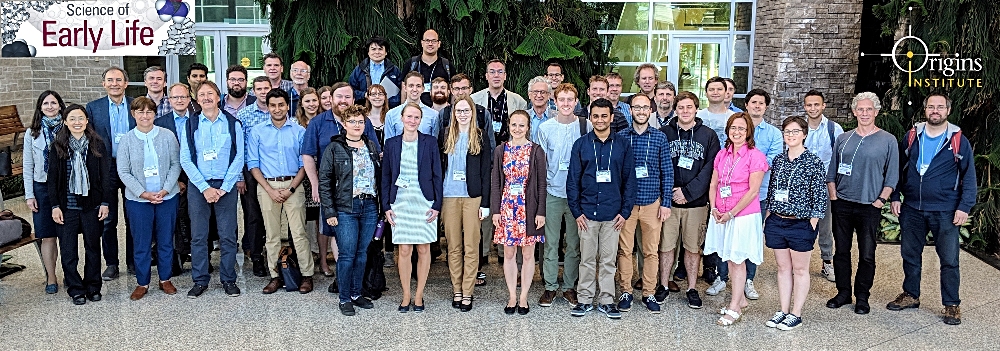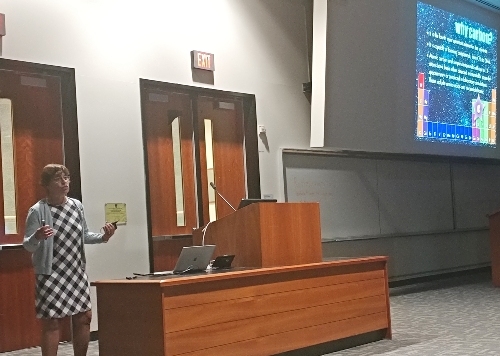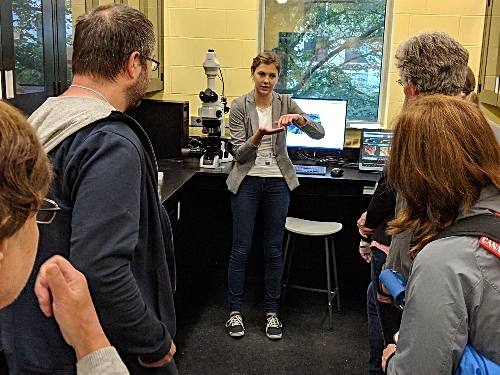International conference explores the origins of early life

This week, leading researchers from around the world gathered on campus for Science of Early Life, an interdisciplinary conference organized by McMaster’s Origins of Life Institute.
How did life on this planet originate? What was the first organism and how was it formed? Does life exist elsewhere in the universe, and how does that relate to the origins of life on Earth?
This week, researchers from around the world gathered on campus to discuss these questions and more at Science of Early Life, an international conference organized by McMaster’s Origins of Life Institute.
The conference brought together Origins of Life researchers from a range of disciplines including astronomy, biochemistry, mathematics, biology, physics, geology, and more, to share cutting edge research in a number of areas.
“We are trying to address as many different topics related to the Origins of Life as we can because finding answers to the questions we consider involves an interdisciplinary approach and methods from a variety of subjects,” says Paul Higgs, director of the Origins Institute and co-organizer* of the conference.
Throughout the week, participants heard from a number of leading international researchers from MIT, German Max Plank Institutes, the University of Oxford, the Harvard-Smithsonian Centre for Astrophysics, and the University of Tokyo, among many others.

Sessions focussed on a range of topics from the role of pre-biotic molecules in forming RNA polymers – the first genetic material found in all life today – to understanding how RNA is able to replicate on its own, and how it evolved into a modern system of DNA-RNA-proteins.
There were also sessions on astrophysics which explored the role of meteorites in delivering the biomolecules necessary for the emergence of life on Earth, and which looked at the chemistry found in different parts of the solar system, such as on exo-planets. As well, there was a session on mathematical biology sponsored by the University of Toronto’s Fields Institute for Research in Mathematical Science.

As part of the conference, featured speaker Lynn Rothschild, a NASA senior scientist, and adjunct professor at Brown University and at the University of California, Santa Cruz, gave a public lecture to more than 400 members of the McMaster and Hamilton communities on whether the origin and evolution of life is predictable, and what that could mean for the search for life elsewhere in the universe.
“Could you predict from the big bang that we would end up here today?” she asked, concluding that it’s likely that many evolutionary responses like intelligence and the progression from single cell to multiple cell organisms can be predicted and could occur elsewhere.
As well, a number of McMaster researchers presented at the conference including Maikel Rheinstadter, associate professor of physics and astronomy,who spoke about, and gave tours of, McMaster’s new Origins of Life Laboratory which simulates conditions on the early Earth and other planets to investigate how the first life was formed.

Graduate students were also invited to take part in the conference. ‘Graduate Student Day’ brought together students from the Origins Institute’s Collaborative Graduate Program in Astrobiology, as well as students other disciplines, to explore a number of topics including how to analyse samples, such as meteorites from Origins Lab experiments, and how RNA could have formed 4.2 billion years ago when life first appeared on Earth.
Students in the Graduate Program in Astrobiology also had the opportunity to share their work and give lab demonstrations.
“The Graduate Program in Astrobiology is an interdisciplinary program made up of students from five departments in the Faculty of Science – this was a great way to bring them, and other students, together,” says Higgs.
The Science of Early Life conference ran from June 24– June 27.
*Ralph Pudritz and Maikel Rheinstadter, both from McMaster’s Department of Physics and Astronomy, as well as Thomas Henning, director at the Max Plank Institute in Germany, were co-organizers of the conference.

